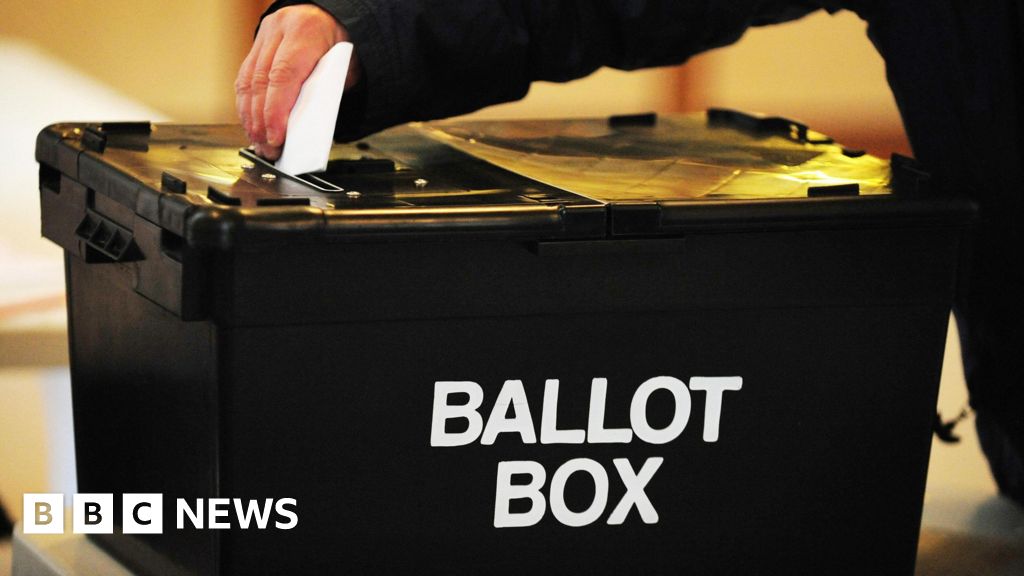ARTICLE AD BOX
A proposed code of practice covering police use of live facial recognition in England and Wales has been criticised by human rights groups.
Live facial-recognition systems compare faces captured on closed-circuit television with those on a watch-list, alerting officers to a match.
Former CCTV watchdog Tony Porter said the new rules were "bare bones" and offered unclear guidance.
And two campaign groups have called for the practice to be ended entirely.
The Home Office said the new guidelines, included in the first update to the Surveillance Camera Code of Practice in eight years, empowered police and maintained public trust.
'Intimidate protesters'
In August 2020, Ed Bridges, of Cardiff, won a court case after twice being filmed by South Wales Police's automatic facial-recognition van.
On the final occasion, the former Lib Dem councillor was attending a peaceful protest.
"I take the view that in this country we have policing by consent and the police should be supporting our right to free protest, rather than trying to intimidate protesters," he told BBC News, after his court victory.
In its judgement, the Court of Appeal said more checks should have been made to ensure the live facial-recognition (LFR) algorithm used had no gender or racial bias - and tighter regulations were needed.
'Dystopian surveillance'
The new code, which covers CCTV use by local authorities and the police, says LFR deployments should:
- take into account any potential adverse impact on protected groups
- be justified and proportionate
- quickly delete any unused biometric data collected
- follow an authorisation process
- set out and publish the categories of people sought on the watch-list and the criteria on which the decision to deploy is based
Liberty lawyer Megan Goulding, who worked on Mr Bridges's case, told BBC News: "One year since our case led the court to agree that this technology violates our rights and threatens our liberty, these guidelines fail to properly account for either the court's findings or the dangers created by this dystopian surveillance tool.
"Facial recognition will not make us safer, it will turn public spaces into open-air prisons and entrench patterns of discrimination that already oppress entire communities".
The campaign group Big Brother Watch also called for the technology to be banned and said the code legitimised the use of an invasive surveillance technology.
However the Ada Lovelace Institute told the BBC, the updated camera code, "provides important additional guidance around the use of biometric technologies such as LFR in surveillance cameras".
But it said, "far more still needs to be done to ensure that the rules concerning the use of a technology as powerful and controversial as live facial recognition are clear, comprehensive and provide adequate protections from potential harms".
'Somewhat surprised'
After the Bridges case, Mr Porter, the then Surveillance Camera Commissioner, produced 72 pages of guidance on the use of LFR, for police forces in England in Wales.
He said: "It covered ethics, governance, leadership, the technical development of watch-lists - and I was somewhat surprised the redraft of the code was 'de minimis'," a legal term describing something too small to merit consideration.
He says the proposed Home Office code as currently written is very "bare bones".
"I don't think it provides much guidance to law enforcement, I don't really it provides a great deal of guidance to the public as to how the technology will be deployed", he added.
Mr Porter, now chief privacy officer for a facial-recognition supplier, added it was strange the new code would not cover organisations such as Transport For London, which owns thousands of cameras but would cover small councils.
The current surveillance-camera commissioner has also previously suggested expanding the code to cover CCTV operated by government departments.
'Widespread invasiveness'
In a statement the Home Office told the BBC, "The Government is committed to empowering the police to use new technology to keep the public safe, whilst maintaining public trust, and we are currently consulting on the Surveillance Camera Code."
"In addition, College of Policing have consulted on new guidance for police use of LFR in accordance with the Court of Appeal judgment, which will also be reflected in the update to the code."
It added that all users of surveillance camera systems including LFR are required to comply with strict data protection legislation.
In 2019, Information Commissioner Elizabeth Denham said the police should slow down their adoption of LFR.
"Never before have we seen technologies with the potential for such widespread invasiveness," she blogged.
And her office now says it will be responding to a consultation on the updated code.
"Data-protection law sets a high bar for police forces, public authorities and businesses to justify the use of live facial recognition (LFR) technology and its algorithms in public places," a representative said.

 3 years ago
226
3 years ago
226








 English (US) ·
English (US) ·